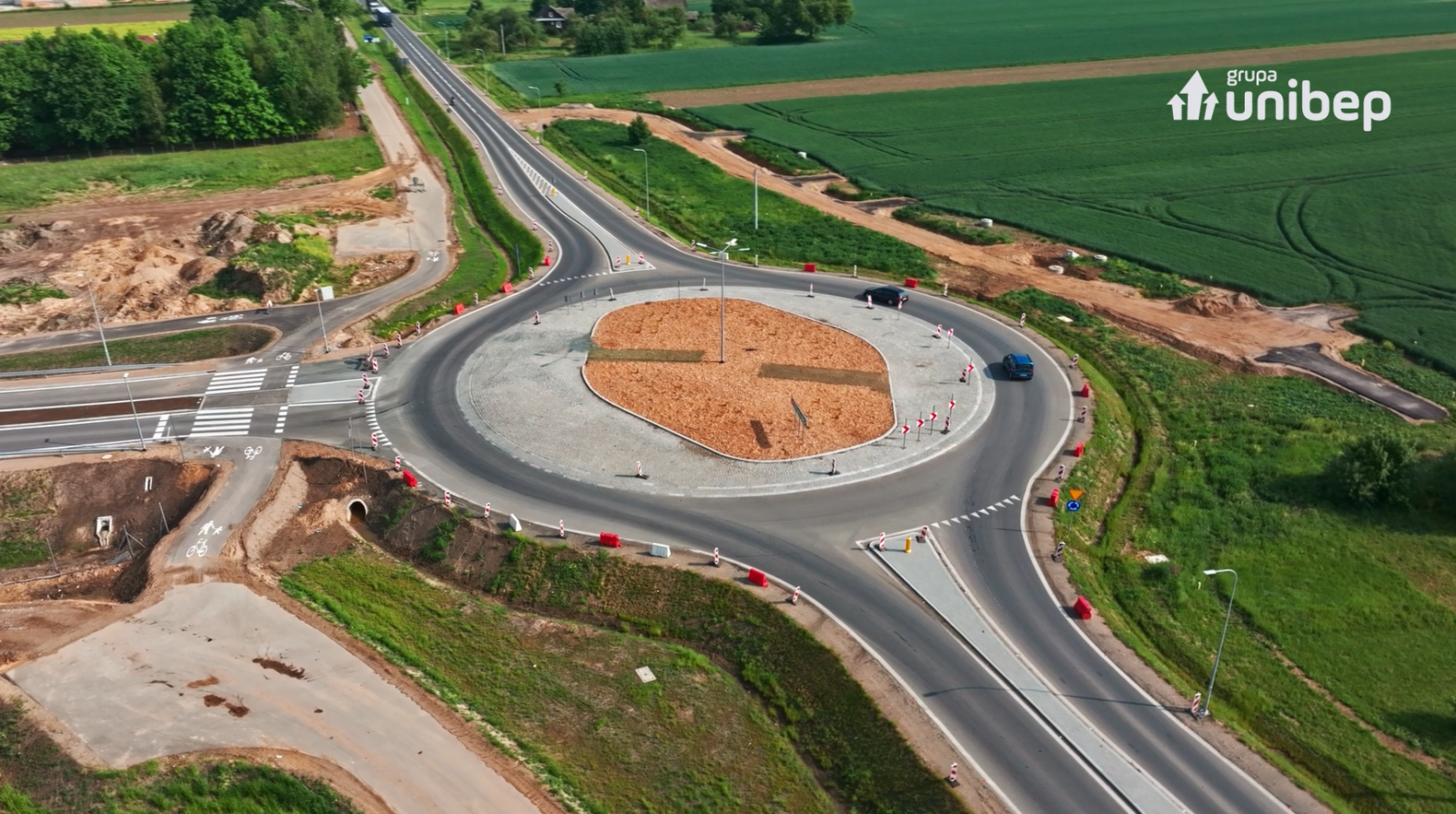The Bielsk Podlaski ring road nears completion

The construction of the Bielsk Podlaski ring road along National Road No. 66 is an investment that will significantly change the functioning of the city and its surroundings. The project implemented by Unibep, connecting the existing sections of DK19 and DK66, has already reached over 90% completion. Only finishing works remain until completion: installation of vertical and horizontal signage, barriers, railings, glare screens, and special protective screens for bats.
As Tomasz Gibułski, Contract Director, points out, “In projects like this, the most important thing is not only what we build but how we build it. The ring road of Bielsk Podlaski is the infrastructure designed to serve residents for decades, which is why from the very beginning we focused not only on technology but also on relationships — with the investor, the local community, and each of our partners.”
Close to the goal
Most of the construction work has already been completed. Earthworks, substructures, roadbed drainage, and all pavement layers have been completed. Two bridge structures — OM167 and OM170 — have also been completed, along with five ecological culverts and a full range of specialised works, including sanitary, electrical, and telecommunication tasks. The final elements related to traffic safety are being completed.
Importantly, the entire project was implemented according to schedule, without significant delays — thanks in part to favourable weather and efficient work organization.
“The biggest challenge in this investment was not the terrain conditions or the pace of work — but the scale of coordination. At any given moment, a dozen or more teams from different trades are working simultaneously, so everything has to mesh like a well-oiled machine. Sometimes the logistics is more precise than the construction itself,” says Mateusz Koc, Construction Engineer
Caring for the natural environment
The bypass runs through areas of high environmental significance, which is why from the very beginning of the project, a range of measures have been implemented to minimise its impact on the surroundings. Trees were protected, interference with root systems was avoided, and work was carried out under the supervision of specialists — entomologists, ichthyologists, and chiropterologists. Fish, birds, amphibians, reptiles, and bats were all protected, even special guiding screens were installed for the bats.
This approach allowed the project to be implemented in harmony with nature and with full responsibility for the region’s biodiversity.
Putting the Community First
The Unibep team has been in ongoing dialogue with the local community from the very beginning. Every concern raised by residents was analysed and addressed as quickly as possible — either through design modifications or on-site discussions. Thanks to this, misunderstandings were avoided, and the project proceeded in an atmosphere of understanding and cooperation.
Importantly, residents showed great patience and openness — despite temporary inconveniences such as limited access and increased noise.
Team and management — precision logistics
Currently, about fifty people are involved in the work. Most of the work is carried out by subcontractors, while Unibep, as the general contractor, is responsible for managing the entire process: planning, quality control, logistics, scheduling, and communication with the investor and supervision.
This is a working model that proves especially effective in infrastructure projects. Its success depends on an experienced engineering team and on building partnership relations with subcontractors — not only through contracts but also through daily cooperation on site.
History buried in the ground
During the earthworks, the team uncovered relics of an ancient settlement dating back to the Roman influence period. The discovery of pottery fragments and a bone comb led to a temporary halt in work and the handing over of the finds to conservation authorities. Archaeological work lasted for six months, necessitating a reorganisation of the work front and adjustments to the schedule.
Thanks to the team’s quick response, the project’s pace was maintained, and delays minimised.
Near Completion, Close to the People
The final stage of every project is a time of intense work but also growing satisfaction. The Unibep team approaches the finish with full conviction that they are building more than just a stretch of road. This is a project that will improve quality of life, enhance safety, and enable the growth of the local economy.
And although over the past months we have experienced a range of emotions — from organisational pressure to pride in the results — one thing remains constant: commitment. Because that is exactly what this road is — thoughtful, necessary, and built with full responsibility.
“Every construction is the effort of people, their knowledge, time, and determination. But it is at the finish line that the true nature of the team becomes clear. We are different, we have different tasks, but we are united by one goal. And it is this sense of shared responsibility that drives us the most,” summarised Tomasz Gibułski, Contract Director.